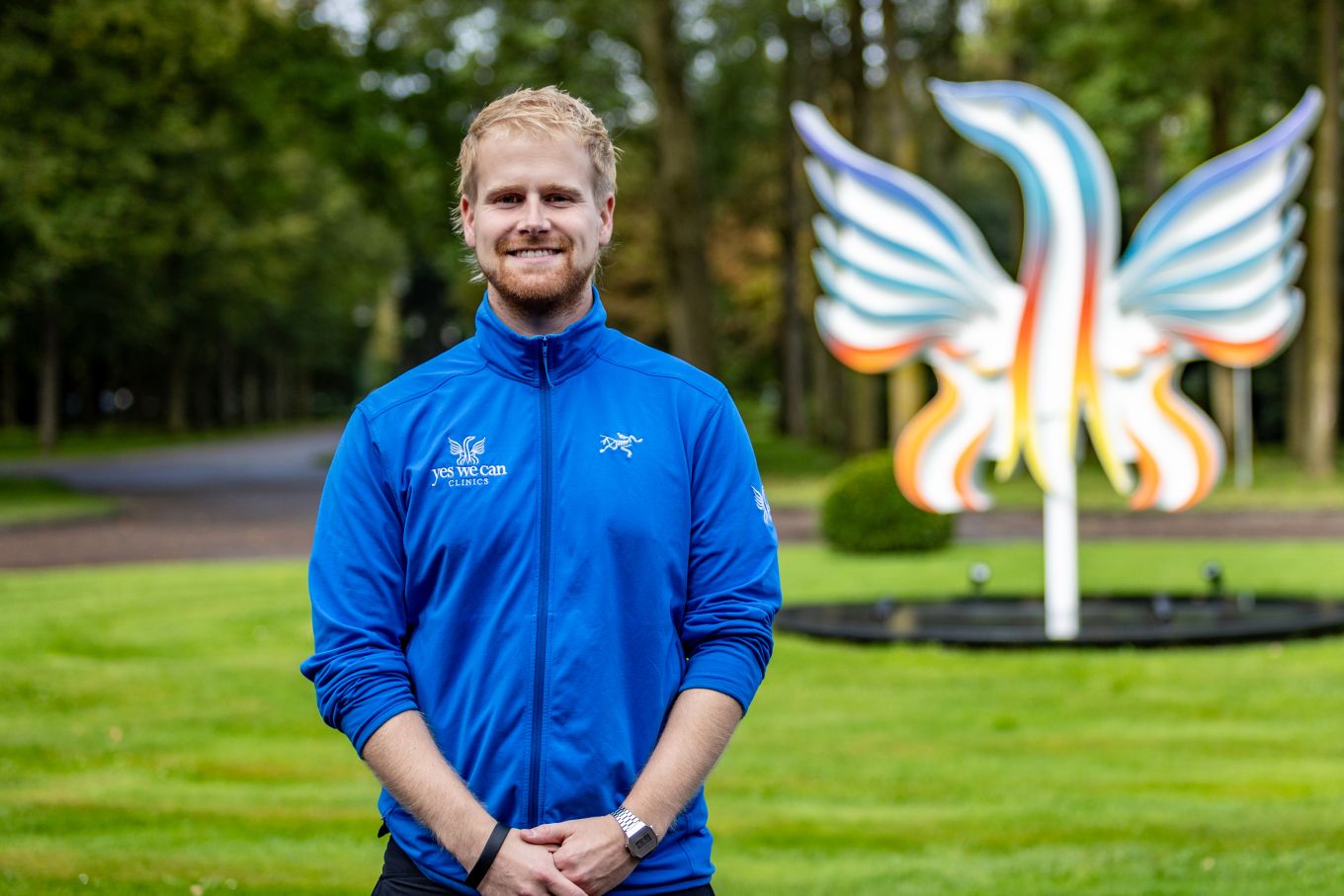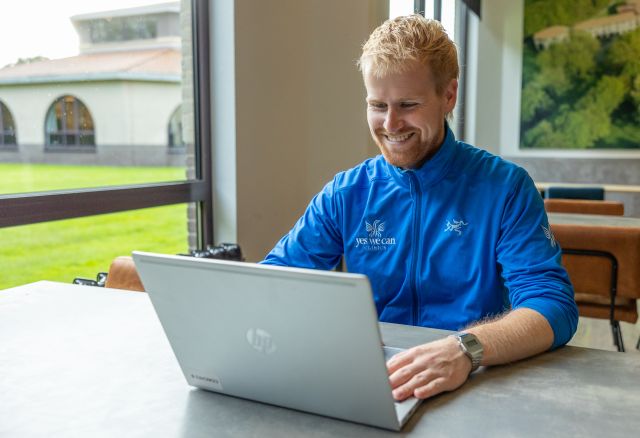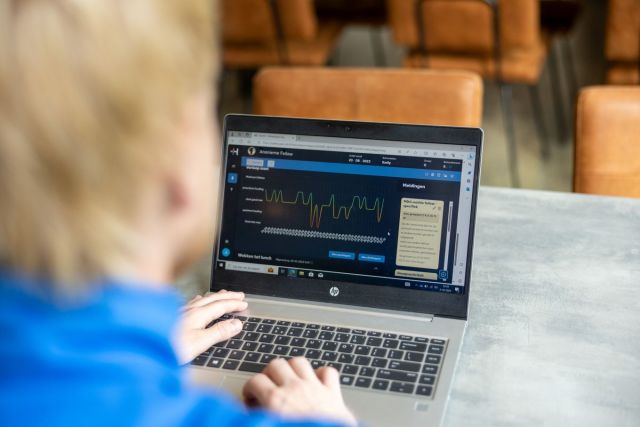-
About Hawking
- About Hawking ×
-
Our technology
- Our technology ×
-
EN
- Change language ×

Youth Coaches at Yes We Can Clinics are often described as "the brothers and sisters of the fellows (clients) in the clinic." They are available 24 hours a day for the young people in the clinic in Hilvarenbeek and are there for the fellows in the day treatment program in Eindhoven three days a week. They engage in sports, meals, and activities with the fellows and provide support during challenging moments. While the coaches feel comfortable as big brothers or sisters, they are much more than that. They are an indispensable link between young people, therapists, counsellors, psychiatrists, and all other disciplines. Stein Borger is the team captain of the Youth Coaches, and he explains what coaches do at Yes We Can Clinics and how Discovery helps them.
Stein: "As a Youth Coach, you are with the fellows in the clinics all day. You talk to them, laugh with them, and offer support when a fellow needs it. A coach has continuous interaction with the fellows. As a result, you not only see everything that happens in the group, but you also develop a sixth sense to perceive things that you don't see or are not spoken out loud. This allows you to gather much information about the boys and girls treated at Yes We Can Clinics. Who didn't get out of bed well, and who was already motivated and ready for morning exercise? Who was late for meals? Who is not feeling well? Who took a proactive approach during the sports session? What role does a particular fellow take on during an activity? This information is essential for the therapists.
We share our findings during the daily multidisciplinary meetings with therapists, counsellors, nursing staff, and psychiatrists, and we keep track of everything in Discovery."

"Before we started using Discovery, we kept everything in Excel. We wrote all our findings in detailed reports at the end of a shift. And yes, that took quite a while. How long? On average, about three hours a day. Multiply that by 36 coaches who all did this, and you'll know how much time we coaches spent on this."
"Counsellors, psychologists, and psychiatrists read these documents. This gave them an idea of how the group was doing and how individual fellows were developing during treatment. However, reading all those reports must have also taken quite a bit of time. As a coach, I sometimes thought, 'Who has to read all this? What can you do with it?' It was a lot of text."
"Discovery has had a major impact on our work in many ways. Firstly, writing the daily reports is much faster. Instead of typing everything out, we can click on several 'tags' with keywords. These tags were created in consultation with us. Together with Hawking, we looked at which terms we often used. Of course, if necessary, we can still type additional text. Now, we can easily make notes at both individual and group levels."
Because everything is much faster, we can report at fixed times throughout the day. It's so easy and quick that it doesn't burden the other coaches when you update some things in Discovery. As a result, you need to remember more, and you can also note more about fellows who may be less noticeable and stay more in the background. So, it's not only faster, but in the time we now spend on Discovery, we can provide much more information about the fellows.
"That makes me feel even more like I'm beging part of the treatment, and that feels good."
But the benefit isn't just in the speed, significant though it is. What I particularly appreciate about Discovery is that I derive much more satisfaction from reporting. All that work is actually being seen. That something is being done with it. I so often now have a therapist come up to me because of something they've read in Discovery. This makes me feel even more a part of the treatment process, which feels good.
Another advantage is seeing how a fellow does much more quickly. Or what the atmosphere is like within a group. Instead of going through various Excel reports to learn something about a particular young person, now, with just a couple of clicks, you get a complete picture of someone and the group's atmosphere. Thanks to the clear charts, you can see how someone is progressing in their recovery.

I also find it fantastic that the fellows themselves indicate daily in Discovery how they're feeling and doing. This provides a very clear picture of the community's atmosphere. This absolutely benefits safety. Also, you get a "forecast" of the direction in which things are heading for an individual or the entire group. The system has learned a great deal because there's so much information about so many fellows in Discovery. This knowledge is then translated into those forecasts. Don't ask me how it works."
In addition to the coaches and the fellows, the therapists also use Discovery for their reporting. They have access to many more tags than we do because they conduct much more intensive one-on-one conversations with young people. They also discuss very different matters with them than we do. The peer support counselors use Discovery as well. To record what happens during the group sessions, they facilitate and see the information from coaches and therapists. It's like being in touch with everyone throughout the day to provide updates on individual fellows and the whole group.
"I now spend an average of one to one and a half hours a day in Discovery. That's at least 50% time-saving. For a coach, that means the difference between sleeping at one in the morning or at eleven-thirty at night. And that's really very nice."
Do you also want to reduce the registration time for your staff? Or would you like to find out what else Hawking Healthcare Technology can do for your organisation? Then please get in touch with us. Call us at +31 (0)85 076 3000 or use our contact form.
Contact us